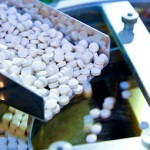 The time and expense of getting a new drug to market seem to be getting ever grander, with estimates that taking a drug through trials can take up to a decade.
The time and expense of getting a new drug to market seem to be getting ever grander, with estimates that taking a drug through trials can take up to a decade.
What’s more, a 2014 report found that the average cost of getting a new drug to market had ballooned to a whopping $2.6 billion.
It’s a topic I’ve covered before, with a study published earlier this year highlighting how automation could be used to reduce the cost of drug discovery by approximately 70%.
It’s an approach that a number of companies are taking to market. For instance, London based start-up Stratified Medical utilizes complex AI to look for patterns in the scientific literature.
They have already managed to identify two potential drug targets for Alzheimer’s that has already attracted the attention of pharmaceutical companies.
Making lab work easier
Whereas Stratified et al look at the things researchers should focus on, OT.One is aiming to make the lab work itself a little smoother.
The OT.One is a micropipette robot that’s been developed by Opentrons to help automate various laboratory tasks. It comes with a number of open source applications to enable researchers to easily conduct a wide range of experiments.
It provides researchers with an easy to use platform that allows them to design experiments via the browser, with the robot performing many of the repetitive tasks quickly and efficiently.
The company have already completed successful crowdfunding back in 2014 and are committed to a principle of open sourced development that they hope will automate various biology protocols.
The machines are available for around $3,000 and are already being deployed in various labs around the Asia-Pacific region. It’s clear that the drug development process needs a significant overhaul if it’s to be fit for purpose.
Hopefully these innovations will go some way towards helping achieve that. Check out the video below to learn more about OT.One.
This is certainly something that needs looking at, but I sense the changes are so systemic in nature that fixing this will be difficult.